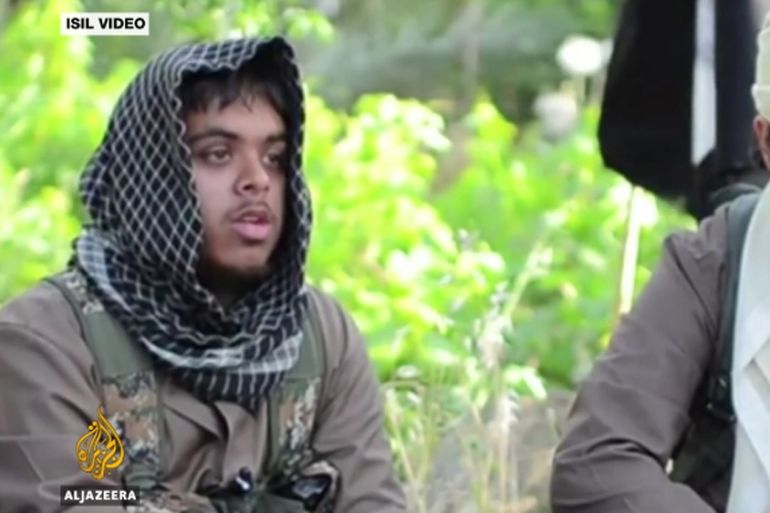Drone strike that killed Reyaad Khan ‘not transparent’
Intelligence and Security Committee says government did not disclose key documents over killing of Reyaad Khan in Syria.

British politicians who examined the details of a drone strike which killed a British man in Syria said they were disappointed by the government’s lack of transparency during investigations.
On August 21, 2015, the UK conducted a drone strike in Raqqa for the first time outside the traditional theatre of war, killing 21-year-old British national Reyaad Khan, a suspected fighter with the Islamic State of Iraq and the Levant (ISIL, also known as ISIS), and two other people.
Keep reading
list of 4 itemsVladimir Putin sworn in for fifth term as Russian president
What’s at stake in Chad’s presidential election?
Why South Africa’s opposition may struggle to unseat the ruling ANC
“We are in no doubt that Reyaad Khan posed a very serious threat to the UK,” the Intelligence and Security Committee in the UK said in a report on Wednesday.
“There is nevertheless a question as to how the threat is quantified, and in this instance whether the actions of Khan and his associates amounted to an ‘armed attack’ against the UK or Iraq – which is clearly a subjective assessment,” the committee said.
“The [government’s] failure to provide what we consider to be relevant documents is profoundly disappointing,” the report added.
Cameron’s self-defence justification
Despite not having a parliamentary mandate to take military action in Syria, then Prime Minister David Cameron told MPs at the time that Khan was “seeking to orchestrate specific and barbaric attacks against the West, including directing a number of planned terrorist attacks right here in Britain, such as plots to attack high-profile public commemorations”.
Cameron described the attack in ISIL’s de facto capital as an act of self-defence.
“The strike against Khan was also thought to have killed two other individuals travelling in the same vehicle: Rahul Amin and another passenger,” the committee said, adding that it was possible the deaths of the pair were “collateral damage”.
READ MORE: The future of war – Inside UK drone command
“We have … been prevented from looking at this issue in as much detail as we consider it requires. On the basis of the information that was made available to us, there would appear to be questions around the assessment of the possibility of collateral damage which would benefit from further scrutiny,” the report explained.
For the strike to be justified under the UN Charter, an assault must be a necessary and proportionate response to an armed attack which is deemed imminent.
‘Government should be more transparent’
However, the investigating MPs said they were unable to assess if this was the case, as the government failed to disclose vital documents.
“The government should be more transparent about these matters and permit proper scrutiny of them,” said Dominic Grieve, chair of the committee.
The group had initially sought to investigate two other drone strikes which killed UK nationals Junaid Hussain and Mohammed Emwazi in August and November 2015, Yasmine Ahmed, Rights Watch director, told Al Jazeera.
But the group was unable to do so because US-operated drones were used on both occasions.
This curtailed the scope of the committee’s probe, despite the UK being complicit and perhaps even facilitating the attack, Ahmed claimed.
“It appears that there is no oversight or accountability on strikes of this nature,” Ahmed said.
Additional reporting by Jenna Belhumeur